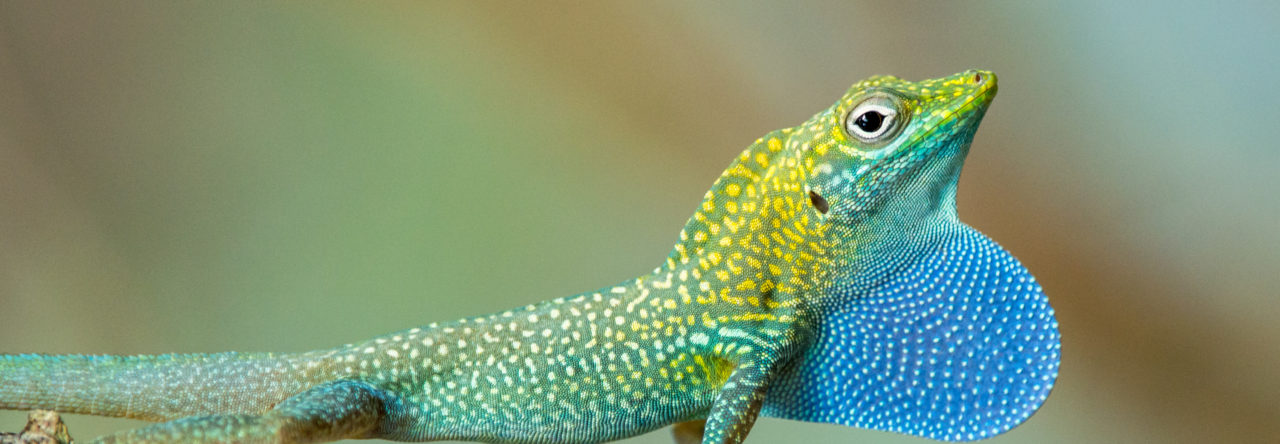
There are so many great anole talks at SICB 2020, I’d be remiss if I didn’t take this opportunity to shed some light on some of our fantastic undergraduate researchers, who turned out in force to Austin this year! As I’m sure Dr. Kristin Winchell will tell you, anole lizards make awesome model organisms for studying the effects of city life and urbanization on wildlife.
Cities can be dangerous though. A lot of different urban environments will present wildlife that have not lived in cities with numerous pressures they might not have faced before, such as different surfaces and substrates on which to run, different temperatures, and even new predators. One of the relatively new pressures that goes along with city life is light at night, and artificial light to boot. If you’ve ever been too disturbed by light during the moonlight hours to sleep and rest, imagine how small lizards feel!
To address the effects of this pressure on green anoles (Anolis carolinensis), Michelle D’Alessandro, an undergraduate student at the University of Scranton working in the lab of Dr. Chris Howey, measured the effects of artificial light at night (I’m just going to call it ALAN) They exposed anoles to ALAN and described the effects of artificial light on metabolism in green anoles. Initially, they did not find any differences between metabolic rates when lizards were exposed to ALAN, however after a sufficient time period, anoles exposed to ALAN increased their metabolic rates during the evening, but not during the day! During this experiment, they also found that ALAN anoles were far hungrier and ate more often than lizards that weren’t exposed to light at night. The term ‘midnight snack’ definitely comes to mind here! Michelle suggests that much like when humans get exposed to changes in sleeping patterns, anoles undergo some energetic changes, causing them to eat more and having to burn more energy. Maybe next time think twice about keeping that porch light on during the waning hours of the evening- give the wildlife some much needed rest.
- SICB 2022! - December 28, 2021
- SICB 2020: Artificial Light Keeps Green Anoles Hungry! - January 8, 2020
- SICB 2020: Variation in Anole Sperm and Testis Morphology - January 8, 2020


Leave a Reply